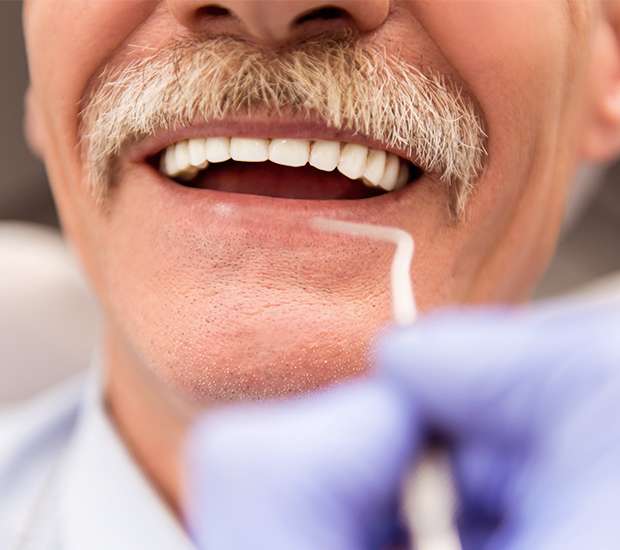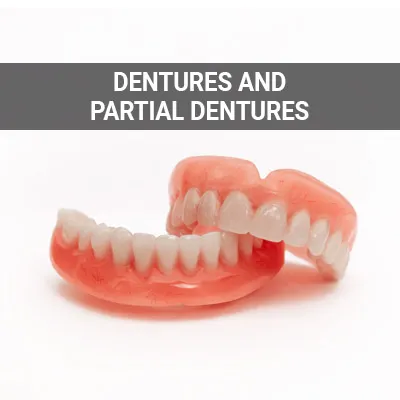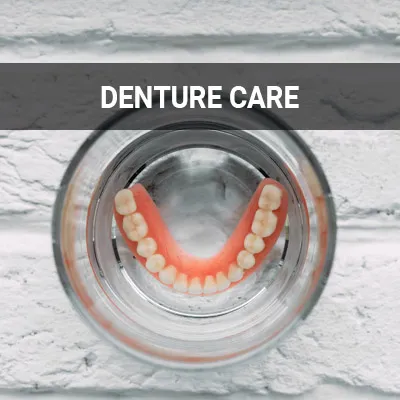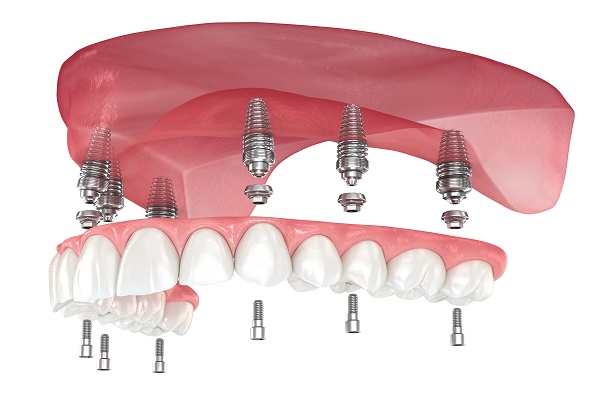Adjusting to New Dentures Dallas, TX
The adjustment period for new dentures brings the excitement of an enhanced smile, but it also requires patience and practice. Making the transition to wearing dentures full time is a significant change that involves developing new eating, speaking, and dental hygiene practices.
Dentures are available at Lalangas Family Dentistry in Dallas and the surrounding area. Our team can provide tips and support to help you adjust well to your new dentures. There are several different strategies to practice and try at home to make the change easier. Call us at (972) 534-6008 to learn more about our services or schedule an appointment.
Tips for Adjusting to New Dentures
While dentures improve the form and function of a person’s smile, they feel and act differently than natural teeth. These differences can entail a learning curve as people must learn how to care for their dentures and get used to smiling, eating, speaking, and drinking while wearing dentures. It is important for people to continue wearing their dentures to help their mouth adjust. It is common for people to feel that their dentures are too loose or big at first. However, the tongue and mouth muscles will soon adjust and help keep the dentures in place.
Speaking is one of the most noticeable adjustments patients must make when adjusting to dentures. Patients may experience some difficulty speaking with them because of the changes in the way the mouth muscles move. We recommend that people practice reading out loud in front of a mirror during those first few weeks. Patients should also make sure they have the right denture adhesive and start by speaking slowly to get used to conversing with dentures.
“While dentures improve the form and function of a person’s smile, they feel and act differently than natural teeth.”
Denture Hygiene Routine
Another crucial aspect of adjusting to new dentures is a consistent and effective dental hygiene routine. Proper denture care is essential to maintaining the health of the gums and mouth. Dentures should be brushed and rinsed every day to remove food and plaque. It is also vital to soak dentures overnight since dentures need to remain moist to maintain their shape.
People should avoid using abrasive cleaning materials such as harsh or whitening toothpaste, hot water, and products that contain bleach. It is also essential to schedule regular dental check-ups. These appointments allow us to ensure that the dentures fit properly and prevent slippage and discomfort.
“Another crucial aspect of adjusting to new dentures is a consistent and effective dental hygiene routine.”
Expectations for the First 30 Days
During the 30-day adjustment period, patients should be gentle on their mouths and take their time adjusting to a new routine. New denture wearers should develop realistic expectations. While oral discomfort is normal and expected, dentures will start to feel more natural and comfortable over time. Increased salivation and sore spots on the mouth are also normal to experience during the first month of wearing new dentures.
While eating and speaking may feel foreign at first, practicing and having patience are key to the adjustment process. If there are still fit and comfort issues after a month, people should contact us for an adjustment appointment. After the first 30 days, people should be able to enjoy their everyday activities comfortably and confidently.
“During the 30-day adjustment period, patients should be gentle on their mouths and take their time with the new routine.”
Check out what others are saying about our dental services on Yelp: Adjusting to New Dentures in Dallas, TX
Adjusting Eating Practices
People with new dentures may also need to adjust their eating practices. We recommend starting with soft foods since chewing becomes more challenging when wearing dentures for the first time. People will have to learn how to chew without popping their dentures out of place, biting their tongues, or scraping their gums.
Once people are ready to move on to tougher foods, it is best to cut the food into small, bite-sized pieces that the back teeth can chew easily. Even once people get used to chewing, they should not chew with the front teeth since it can cause dentures to become unstuck in the back. It is also best to avoid sticky foods, hard items, or tough cuts of meat that may cause dentures to come loose or even damage them.
“People with new dentures may also need to adjust their eating practices.”
Questions Answered on This Page
Q. How should people adjust to their new dentures?
Q. How should people take care of their new dentures?
Q. What should new denture wearers expect during the first 30 days?
Q. How should new denture wearers change their eating practices?
People Also Ask
Q. Why are dentures a preferred treatment?
Q. What is the proper way to take care of my dentures?
Q. What lifestyle changes will people experience after getting dentures?
Frequently Asked Questions
Q. Is adjusting to new dentures easier if patients wear them at night?
A. Wearing new dentures as much as possible helps patients adjust to the fit. Once individuals feel comfortable with their dentures, however, it is essential to remove them at night. Studies from the Journal of Dental Research have found a link between wearing dentures while sleeping and increasing cases of infections, such as pneumonia.
Q. Can I adjust my dentures myself?
A. Though there are several products on the market for do-it-yourself denture repair, it is best to avoid fixing your own dentures. If there are issues with comfort and fit, contact us so we can make the necessary adjustments. Patients can seriously damage or break their dentures if they attempt self-repair.
Q. How long will the diet be impacted when adjusting to new dentures?
A. For most patients, eating and drinking may seem a little different in the beginning. For the first few days after getting new dentures, individuals may feel more comfortable eating soft foods. They should be ready to go back to their regular diet within a week or two.
Q. How can patients feel more comfortable when adjusting to new dentures?
A. It is normal if patients feel minor discomfort or pain during the denture adjustment period. During those first few weeks, patients can try a variety of strategies to reduce discomfort. Topical pain relief gels, gum massage, warm water rinses with salt, aloe vera gel, or pain relief medicine may help.
Q. What are some common issues with adjusting to new dentures?
A. It is common to have more saliva when wearing new dentures. Sore mouth muscles and gum irritation are also typical. As the mouth shifts and gets used to the new dentures, these issues should go away in a few weeks.
Dental Terminology
Helpful Related Links
- American Dental Association (ADA). Glossary of Dental Clinical Terms. 2023
About our business and website security
- Lalangas Family Dentistry was established in 2023.
- We accept the following payment methods: Cash, Discover, MasterCard, and Visa
- We serve patients from the following counties: Dallas County, Collin County, and Denton County
- We serve patients from the following cities: Dallas, Frisco, McKinney, Garland, Mesquite, Arlington, Plano, University Park, Highland Park and Richardson
- Norton Safe Web. View Details
- Trend Micro Site Safety Center. View Details
Back to top of Adjusting to New Dentures










